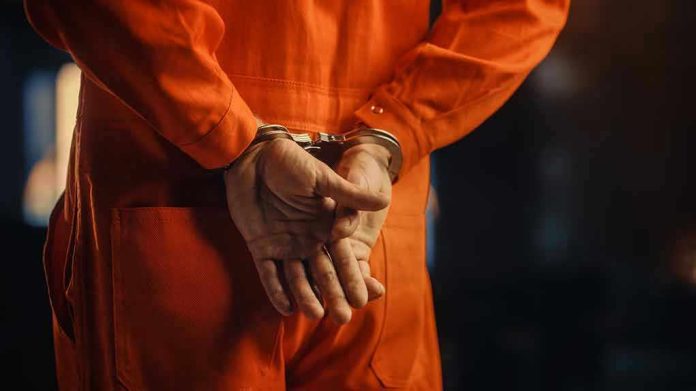
Trump’s designation of Mexican cartels as terrorist organizations has unleashed powerful counterterrorism tools—culminating in the dramatic capture of Sinaloa Cartel plaza boss “El Pato”—but the move also escalates debate over sovereignty, border security, and the future of American law enforcement.
Story Snapshot
- The U.S. now treats Mexican drug cartels as Foreign Terrorist Organizations, granting sweeping new enforcement powers.
- ODNI under Tulsi Gabbard led a nine-month intelligence operation that helped Mexican authorities capture cartel commander “El Pato” in Juarez.
- Trump’s administration prioritized whole-of-government coordination, directly linking cartel enforcement with national security.
- This shift stirs concern over constitutional protections, government overreach, and the resilient threat of cartel violence and corruption.
Counterterrorism Tools Target Cartel Leadership
On October 15, 2025, Mexican law enforcement, backed by intelligence from the U.S. Office of the Director of National Intelligence (ODNI) under Tulsi Gabbard, captured Leonardo Daniel “El Pato” Martinez Vera—a critical plaza boss for the Sinaloa Cartel—in Ciudad Juarez. This arrest followed a rigorous nine-month surveillance effort by the National Counterterrorism Center (NCTC), marking the first time counterterrorism resources, traditionally reserved for threats like ISIS, were deployed against cartel targets. The operation demonstrates President Trump’s new strategy: leveraging the full spectrum of American intelligence capabilities to dismantle transnational criminal organizations that threaten U.S. national security.
Excellent work by @NCTCKent and the counterterrorism team leading to the capture of dangerous drug trafficker and murderer, El Pato.
NCTC is leading the Intelligence Community in driving actionable intelligence to law enforcement to target cartel threats that endanger American… https://t.co/hVRALxHN3E
— DNI Tulsi Gabbard (@DNIGabbard) October 21, 2025
The Sinaloa Cartel, notorious for its complex structure and violent territorial disputes, has long exploited the U.S.-Mexico border. By designating cartels as Foreign Terrorist Organizations (FTOs) in February 2025, Trump’s administration fundamentally redefined the legal framework for these groups. This move unlocked advanced surveillance, asset seizure, and expanded law enforcement powers—tools previously off-limits in the war on drugs. Plaza bosses like “El Pato” are mid-to-upper tier commanders who control key trafficking corridors, enforce cartel discipline, and maintain power through corruption and violence. Their capture disrupts cartel operations but rarely ends them, as new leaders quickly rise to fill the void.
Whole-of-Government Approach: Law Enforcement and Intelligence Coordination
ODNI, led by Tulsi Gabbard, has become the central authority for cartel-focused intelligence operations. The NCTC now coordinates multi-agency efforts, synthesizing intelligence from DEA, U.S. Marshals, and the Diplomatic Security Service to enable high-stakes arrests. NCTC Director Joe Kent praised the FTO designation for enabling a full “whole-of-government approach,” breaking down silos between agencies and maximizing operational impact. The DEA, under Administrator Terrance Cole, intensified its campaign in 2025, including a major sweep resulting in 617 arrests and the seizure of over $11 million and 420 firearms. These operations signal that the Trump administration sees cartel violence and drug trafficking as direct threats to American families, constitutional order, and national sovereignty.
On September 16, 2025, the DEA offered a $5 million reward for Juan José Ponce Félix, leader of the “Los Rusos” faction—a testament to the administration’s aggressive posture. Enhanced tip lines and encrypted channels were established to encourage public involvement. Yet, despite these successes, the fractured cartel landscape has fueled escalating violence, with rival factions like “Los Rusos” and the “Chapitos” battling for control. Intelligence reports allege that cartel leaders pay over $1 million monthly in bribes to officials, complicating enforcement and fueling concerns about corruption undermining rule of law on both sides of the border.
Legal, Diplomatic, and Security Implications
The FTO designation triggered expanded legal authorities: law enforcement agencies can seize assets, expand surveillance, and pursue sanctions against those providing material support to cartels. This reorientation of intelligence priorities has sparked debate about constitutional protections, government overreach, and the proper balance of enforcement. Critics warn that prioritizing counterterror resources for cartel enforcement may strain traditional counterterrorism efforts and risk eroding civil liberties. The shift also impacts U.S.-Mexico relations, as joint operations raise questions about sovereignty and intelligence sharing. While Mexican authorities executed the “El Pato” arrest, the public acknowledgment of American intelligence support may generate political sensitivities south of the border.
Despite high-profile arrests, history shows that cartel resilience is formidable; new leaders quickly replace those captured, and drug markets adapt. The fentanyl crisis, for example, persists despite intensified enforcement. Supply-side strategies alone have not significantly reduced drug flow or pricing in the U.S., prompting calls for complementary demand-reduction initiatives. Nevertheless, the Trump administration’s approach marks a decisive break from past policies, emphasizing security, border control, and a constitutional commitment to protect American families from the scourge of cartel violence and government corruption.
.@ODNIgov’s National Counterterrorism Center worked with our partners to enable the arrest of a dangerous Sinaloa Cartel drug trafficker, even amidst the Democrat shutdown.
Cartels don’t take breaks — they’re foreign terrorist organizations threatening American lives, and they… https://t.co/iLh17KP7dT
— DNI Tulsi Gabbard (@DNIGabbard) October 6, 2025
Limited operational details remain classified, and the full impact of this policy transformation is still unfolding. But as cartels adapt and violence escalates, Trump’s supporters view these actions as long-overdue measures to restore law, order, and sovereignty—defending the Constitution and conservative values in the face of transnational threats, government inertia, and leftist neglect of border security.
Sources:
U.S. Counterterror Intel Helps Mexico Nab Sinaloa Boss ‘El Pato’
$5 Million Reward Offered for Sinaloa Cartel-Linked Drug Trafficker
Press Release: ODNI Counterterrorism Efforts
U.S. Intel Collaborates With Mexican Forces to Arrest Sinaloa Plaza Boss ‘El Pato’
Alleged Sinaloa Cartel Leader Extradited From Mexico Appears in Court







